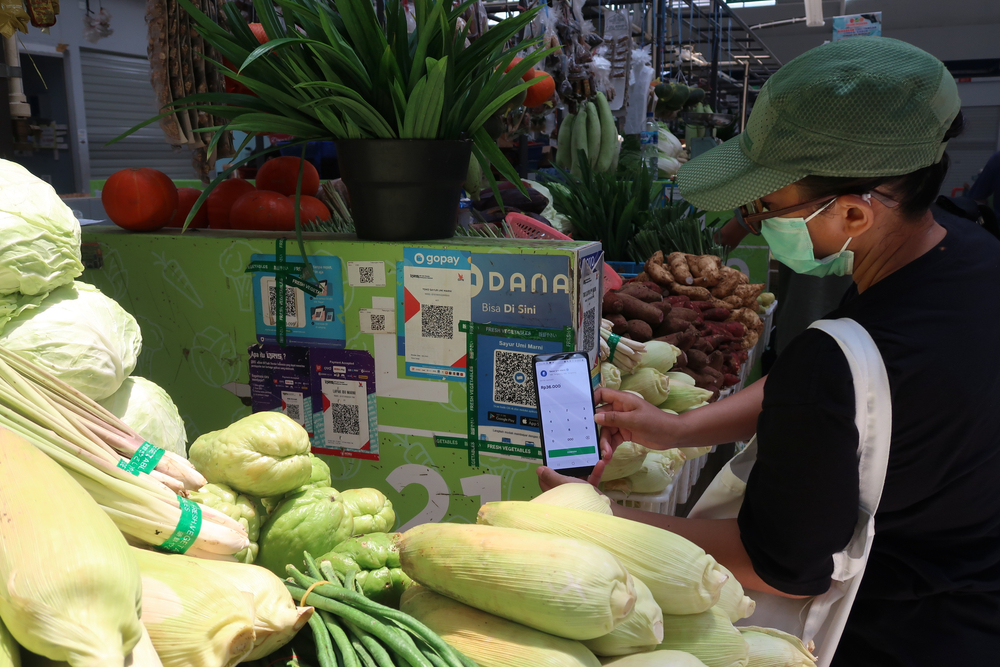
Jakarta’s SCBD business district. Source: Shutterstock
Legally regulating fintech in SEA’s largest economy
- Fintech systems have proven popular in Indonesia, with new entrants regularly entering the digital finance ecocsystem
- But financial regulation needs to be stringent in each market, so what do new entrants have to know about fintech licensing and regulation in Indonesia?
Financial technology, or fintech as its widely referred to these days, has grown rapidly in a short period of time and has since gained higher prominence in Indonesia than traditional banking services, making it a critical disruptor of the finance industry in Southeast Asia’s largest economy.
Fintech products and services have quickly begun to resonate with Indonesian consumers as they are able to attract the unbanked population of the country. In Southeast Asia, more than 70 percent of the adult population is either ‘underbanked’ or wholly ‘unbanked’, according to the 2019 e-Conomy SEA report co-produced by Google, Temasek, and Bain & Company.
The unbanked, through fintech capabilities, can now participate in the digital economy using features like e-wallets, mobile transactions, and contactless payment services – which in turn, allows greater purchasing power for Indonesian consumers.

Paying for market items in Indonesia using a cashless fintech solution. Source: Shutterstock
With nearly half (48%) of southeast Asia’s population residing in Indonesia, Forbes estimates that at least US$110 billion out of an expected US$1 trillion worth of digital transactions in the next five years will represent huge revenue opportunity for fintech startups in Indonesia, and investment in local fintech startups is pouring in.
But with such a fragmented financial landscape in a country with such large economic potential, yet underdeveloped in financial inclusion and technological advancement, means that regulatory oversights might well exist if not for the two governing authorities in Indonesia, namely the central Bank Indonesia and the Financial Services Authority (OJK).
Fintech regulation in Indonesia
In a breakout financial territory, it might not always be clear what the licensing and regulatory requirements might be for businesses that want to set up fintech components or a standalone fintech startup in Indonesia.
According to a blog post by legal consultants Winnie Y. Rolindrawan and Harry Kuswara from Indonesian independent law firm SSEK, the following fintech activities are regulated under Bank Indonesia:
Payment system activities including authorization, clearing, final settlement, and implementation of payment. This category could also include blockchain or distributed ledgers used for the provision of fund transfers, electronic money, e- wallets, and mobile payments;
Market support activities that use information or electronic technology, or both, to facilitate the faster and more cost-efficient provision of information to the public on financial products and services. For example, the provision of information comparing available products or services in the financial services area;
Investment management and risk management for the provision of online investment and online insurance, such as advanced algorithms, cloud computing, capability sharing, open source information technology, automated advice and management, social trading and retail algorithmic trading; and
Lending, financing or funding and capital raising including peer-to-peer (P2P) lending, going through third-party payment application programming interfaces (APIs) or information technology-based fundraising, popularly known as crowdfunding.
While Bank Indonesia regulates the above activities from a licensing or registration standpoint as to how they impact financial system stability and payment systems, the OJK instead regulates the same fintech activities but from the perspective of how these digital financial innovations are influencing the financial services sector.
Besides the above, the OJK also regulates alternative financial service activities like invoice trading, or vouchers and products using blockchain-based applications. Besides that, supporting digital finance activities like automated financial advisories and credit scoring facilities, along Islamic digital financing that is supported in Indonesia like e-waqf and e-zakat are also overseen by the OJK.
The blog also highlights new regulations imposed since mid-last year, requiring any business that provides electronic communication facilities used in trade transactions to have an Indonesian representative.
This includes e-commerce and online trading platforms that are located outside Indonesia but regularly ship or do business in the country, they must have a foreign trade company representative office in the country. Foreign businesses with more than 1,000 annual completed transactions and/or at least 1,000 delivered packages to Indonesian consumers, are also required to appoint a local rep who is based in the region’s largest economy.
READ MORE
- Ethical AI: The renewed importance of safeguarding data and customer privacy in Generative AI applications
- How Japan balances AI-driven opportunities with cybersecurity needs
- Deploying SASE: Benchmarking your approach
- Insurance everywhere all at once: the digital transformation of the APAC insurance industry
- Google parent Alphabet eyes HubSpot: A potential acquisition shaping the future of CRM


